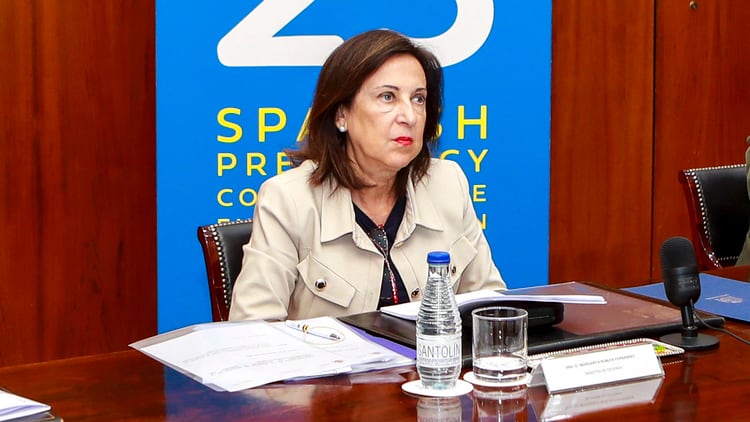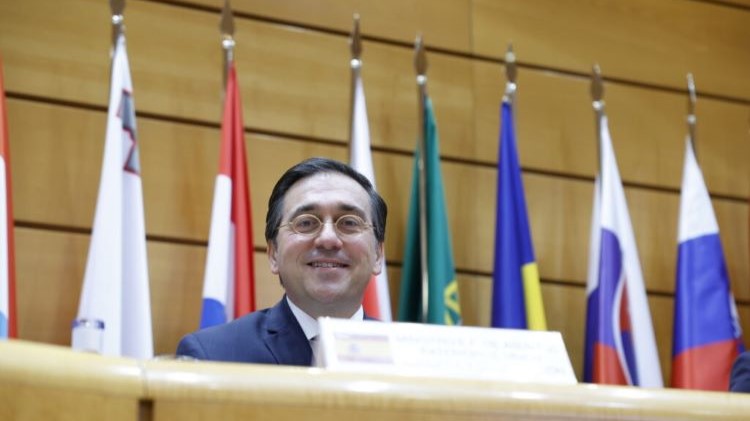The Diplomat
The Minister of Defence, Margarita Robles, yesterday advocated strengthening the European Peace Facility in order for Europe to advance in its goal of becoming a security provider “without forgetting the initial objectives” of supporting Africa.
In a videoconference appearance before the European Parliament’s Subcommittee on Security and Defence, the minister raised the need to shore up the unity of the Member States, pointing out that this has been the key to providing aid to Ukraine and condemning “unreservedly” the invasion by Russian President Vladimir Putin, whom she said should be brought before international tribunals.
Robles defended reinforcing the financing of the European Peace Facility, with which the EU has financed the supply of arms to Ukraine to combat the Russian invasion, but not focusing it solely on the situation in Ukraine, reports Europa Press.
“It is a very useful instrument for helping Ukraine, but we cannot forget the initial objectives of origin and destination, in its support for Africa”, said the Defence Minister, indicating that the geographical focus should be 360 degrees and “avoid looking only at one region”.
It is true,” she pointed out, “that the priority of Ukraine exists, but the situation in the Sahel must be tackled seriously, without complexes and with rigour. Despite the fact that there are different positions, we should all make a very important effort”.
In this respect, Robles lamented what he described as a “terrible divorce” between Europe and Africa, with the succession of coups d’état in Sahel countries where there was a European military presence. In her opinion, this should lead to a “firm and serious reflection” on the situation on the ground and take into account that the most direct consequence is that Russia is taking the place left by the Europeans.
In her speech to explain the priorities of her portfolio during the Spanish Presidency of the Council of the European Union, the minister insisted that Spain’s objective is to strengthen Europe’s capacity to protect its citizens and to project security to the European environment on the basis of EU values.
To this end, she reported that Spain will follow the objectives of the ‘Strategic Compass’, the defence action plan to strengthen the EU’s security and defence policy until 2030. “It is an unprecedented milestone,” he said, of the ‘white book’ on defence, which seeks to strengthen the capacity to act together within the EU.
On this point, he highlighted the first manoeuvres in Cadiz, in October, of the EU’s new deployment capacity, which aims to have up to 5,000 rapid reaction troops to respond at European level in the event of a crisis.
The ‘Strategic Compass’ proposes that by 2025 the EU-27 will be in a position to deploy these forces, which, without a fixed structure, will depend on the resources provided by the Member States.







